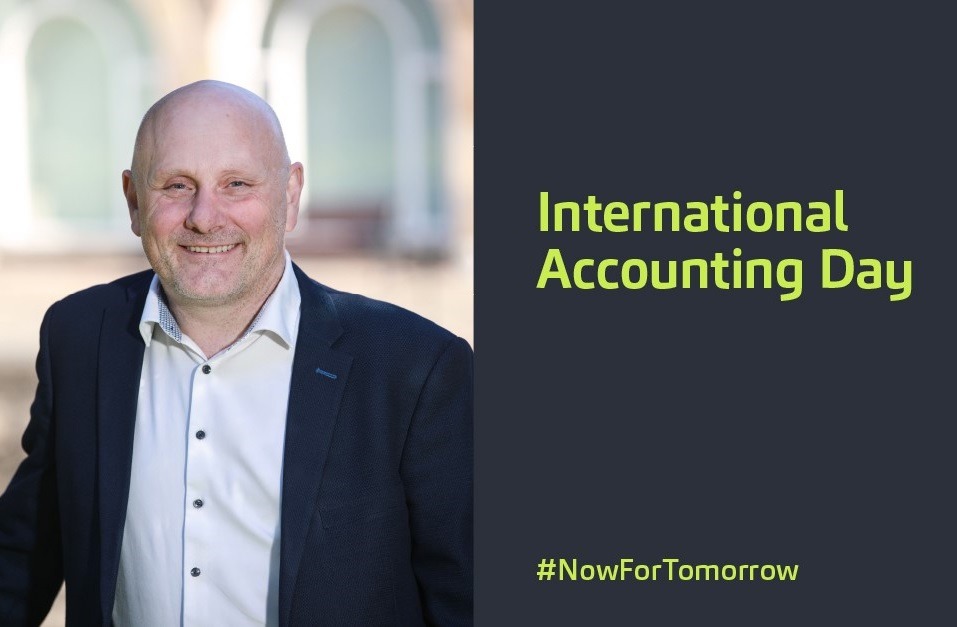To celebrate International Accounting Day, we sit down with Business Services Partner Stephen McConnell to discuss all things accounting – how he got his start within the profession and where he sees the future of the field unfolding.
What initially drew you to a career in accounting, and how has your perspective on the profession evolved over time? When I was younger, I had a part-time job working for an accountant who also happened to run a lemonade delivery business. I worked for him for about ten years, and from around the age of twelve, I decided that’s what I wanted to do. I didn’t really understand what accountancy involved back then, I just thought it looked like a good career. Over the past 35 years, I’ve seen the profession transform completely. When I started, everything was manual — from payrolls to ledgers, VAT returns and record-keeping. It was all paper based. Now everything is digital, with automation tools like AutoEntry, Dext and online banking changing how we work. Clients rarely deal with bank managers anymore; everything is self-service and online. The shift from paper to digital has been huge, and the pace of change just keeps increasing.
What’s one piece of advice you’d give to someone considering a career in business services or consultancy today? Be prepared for anything — and not just the technical side of accountancy. A lot of what we do now isn’t strictly “accounting” at all. People often imagine accountancy is all about numbers, but so much of it is about relationships, communication, and problem-solving. The more you can support your clients beyond the figures, the more value you’ll bring. You will find yourself advising clients on all aspects of their business, particularly staffing as well as exploring new business ventures. I really enjoy this aspect and draw on the specialist expertise within our team here to really go above and beyond the traditional view of what an accountant does. I think of us more as business advisers to our clients.
How do you see digital tools and automation shaping the role of consultants in the next few years? Digital tools are only going to become more central to how we work. Many clients now have bank feeds, automated invoicing, and integrated systems that handle payments, statements and reconciliations almost instantly. It’s incredibly efficient when it works properly. But that’s the key point: automation isn’t perfect. If information is entered incorrectly or the wrong exchange rates are used, for example, it can actually make things more complicated. So, I don’t think technology will replace what we do. Consultants will still need to oversee, correct and interpret the data. The human element — understanding context, spotting issues, and advising clients — remains crucial.
How do you build trust and deliver lasting value to your clients? Trust comes from consistency and honesty. I’ve been with Baker Tilly Mooney Moore for 35 years, and I still work with some of the same clients I started with on my first day. That kind of long-term relationship only happens when clients know you’ll give them honest, up-to-date advice, even when it’s not what they want to hear. If a client wants to make an investment or buy a property that doesn’t make financial sense, you have to be able to say so. They respect that. Our clients stay with us because they know we will tell them the truth and help them make the right decisions.
Outside of the office, what helps you unwind and recharge — do you have any hobbies or passions that keep you balanced? Sport is my main outlet. I’m Chairman of Rosario YFC and coach the under-18s team alongside Chris Morgan, who manages the senior team. I’m also a coach with the Carryduff GAA minors, so most of my week is taken up with sport. It’s practically a second full-time job so although it makes for a busy week, it definitely brings balance to my life. The teams’ progress and success makes it all worthwhile.

